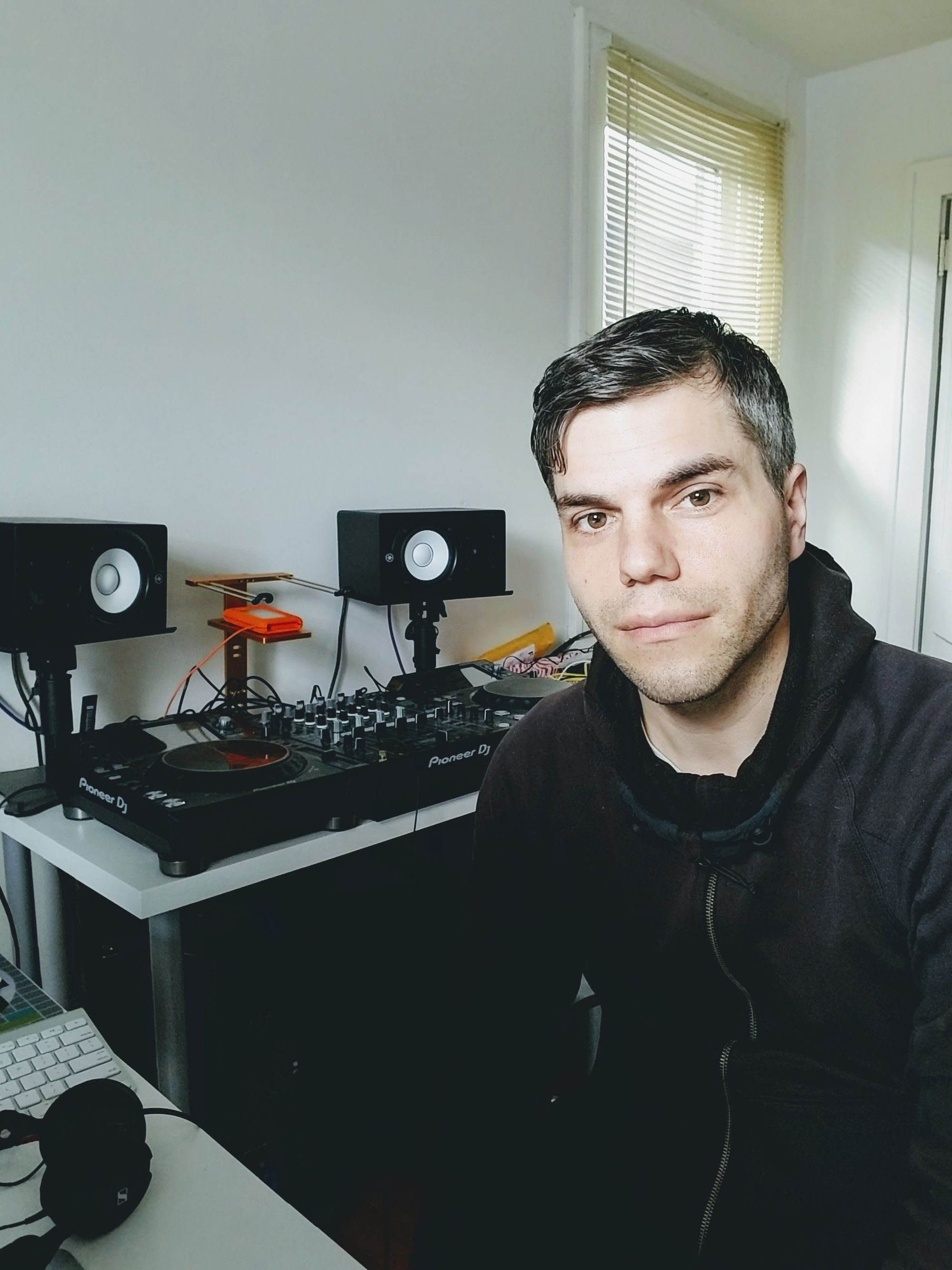About Me

Joseph Wilk (aka J?SEF [\ ˈjā-səf \]) is a Pittsburgh-based educator, librarian, DJ, producer, and poet. Joseph's musical affiliations include dance nights such as Pandemic, 90s Nite, and Sweet Beats; the electronic music pseudonym Chronic Pain; and the Carpatho-Rusyn art rock band Air Guitar Magazine. Appalachia on the outside and tropical on the inside, Joseph's sound productions are inspired by queer & post-colonial frameworks of cultural exchange.
Joseph graduated with a Bachelor of Arts in poetry writing and history from the University of Pittsburgh, engaging in cross-disciplinary analysis of American labor movements and lyrical constructions of working class identity through poetry.
As an elementary school teacher and librarian, Joseph engages students with culturally-responsive and project-based curriculums that explore the ways students can engage stories and information for the purpose of self-knowledge, world-knowledge, and collective liberation. Joseph studied information access and taught community engagement principles as part of the University of Pittsburgh Master of Library and Information Sciences program before achieving a Master of Arts in Teaching degree. Joseph has won multiple awards for librarianship, including a JDCAP award for founding a media arts and literacy program at Shuman Juvenile Detention Center, as well as a PSLA award for initiating the BAM (Books and More) program—which transformed school lunch rooms into literacy-rich environments through deejaying, art, social justice activism, and book circulation.
Why ( no parenthesis )?
The title of this site is an allusion to the e.e. cummings poem "since feeling is first," which includes the end line
And death i think is no parenthesis
In addition to the ironic tensions of a poem extolling the neo-romantic virtues of feeling yet ending in a self-described thought, the phrase "no parenthesis" itself espouses the polysemantic meanings of what a parenthesis can be: an enclosure, a digression, an interlude. In that case, death not being those things allows death—as analyzed by Kristen Leatherwood—to adopt a multiplicity of meanings: open-ended, part of life, the main idea.
In that way, I liken criticism to death. Death is positioned as antithetical to life, just as criticism is often positioned as antithetical to creation. Yet, to be critical has its own multiplicity of meanings—judgmental, in crisis, crucial—that complicates the binary conception of these faculties and processes.
What is an impingement?
impingement, n.
/ɪmˈpɪndʒmənt/
a. Impact, collision. literal and figurative.
b. Encroachment.
In my life, impingements manifest in my joints as part of a debilitating constellation of ailments (including CFS/ME, degenerative joint disease, IBS, Raynaud's disease, etc.). Within culture, I use the word impingements to refer to various ways cultural, artistic, and pedagogical epistemologies emerge, collide, and encroach upon each other.
There's also a beautiful synchronicity in the way that impingements deform the smooth, parenthetical curvature of a bone's epiphysis.
A note on capitalization
On this website, I capitalize all historically-created racial identities inclusively, whether Black, Brown, or White. I do not capitalize White out of deference to White supremacists, nor do I avoid capitalizing White due to the absence of an explicitly-articulated mainstream White identity. I agree with the premise that this article espouses, as well as the Center for the Study of Social Policy, which is that Blackness and Whiteness exist in dialectical relation to each other and should be rendered as such. I also believe that just because Whiteness does not dare speak its own name does not mean that it deserves to be naturalized with the same capitalizing rules as the color itself. For additional perspective, see these essays by Eve Ewing and Nell Irvin Painter.
